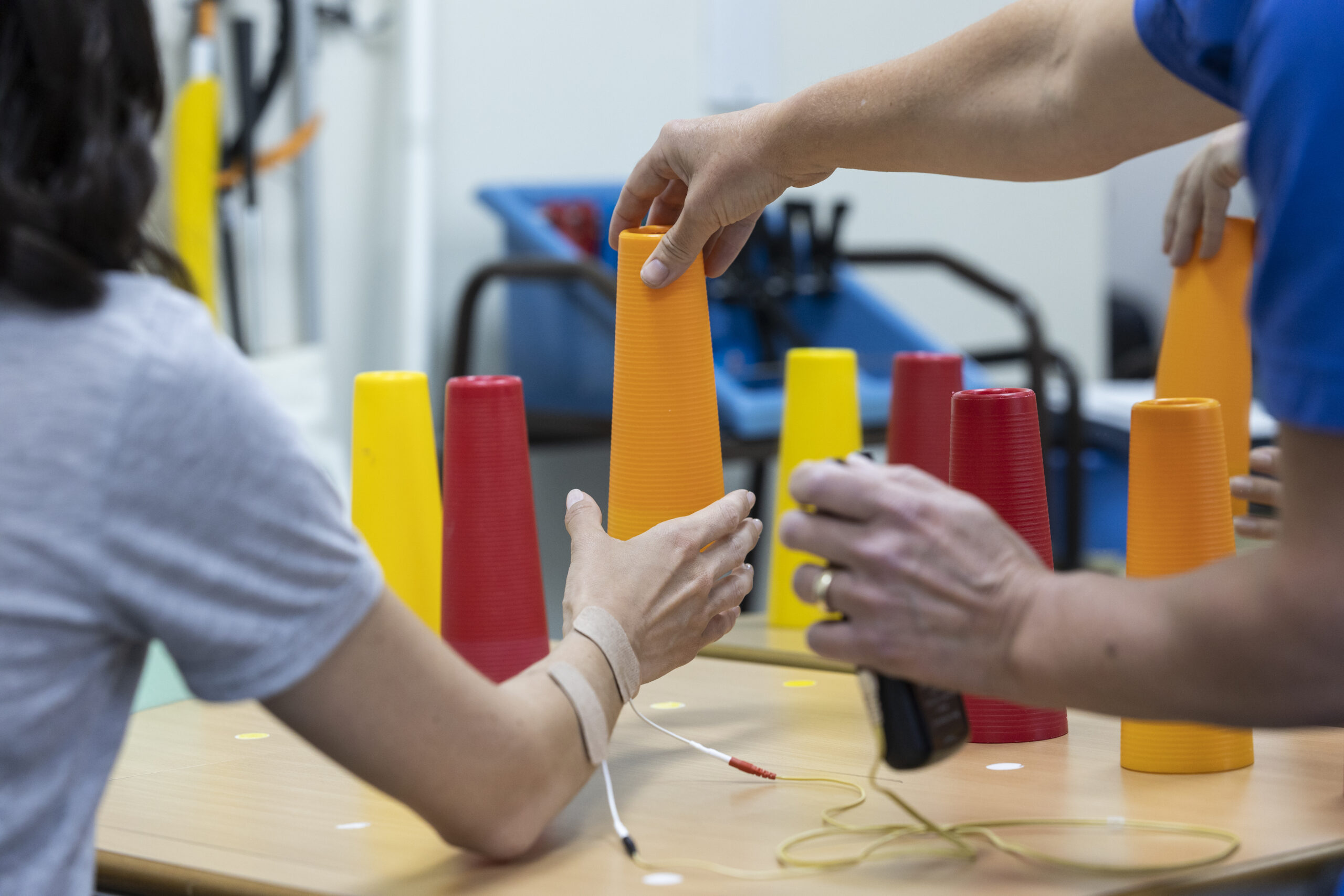What to expect as you recover from a stroke
Read time: 3 mins

The sooner you begin therapy after a stroke, the more likely you are to make significant gains in recovery. The most critical factor during the early stages of stroke recovery is to establish a rehabilitation programme which is built around a person’s specific needs.
So what can you expect from a personal stroke rehabilitation plan during the first few weeks of recovery?
Stroke recovery: the first week
A stroke recovery timeline usually begins just 24 hours after being admitted to hospital. Typically, the time spent in a hospital after a stroke is between five days and a week. During this time, a stroke care team will make a detailed evaluation of the effects of the stroke before creating an appropriate recovery plan for you.
Depending on the severity of the stroke and the areas of the brain affected, the long-term effects to address may include:
- Psychological: After a stroke, it’s not unusual to experience emotional symptoms such as anxiety, depression and impulsiveness.
- Cognitive: After a stroke, people often have problems with memory and trouble speaking.
- Physical: Weakness, partial paralysis, difficulty swallowing, and a reduced field of vision are all common side-effects of a stroke.
- Fatigue: After a stroke, many people lose stamina and find they get tired more easily. They can also have trouble sleeping, which only causes more tiredness.
When someone first arrives at our Stroke Clinic, the first thing we do is to conduct a full assessment. This will include extensive investigations (such as blood tests, respiratory function test and echocardiogram), as well as function tests, in order to uncover the root cause of the stroke, the extent of the impact, and to create a tailored recovery plan off the back of the results.
Stroke recovery: the first three months
The three months following a stroke are regarded as the most crucial period for recovery. With proper support and care, this is when patients can experience the most significant gains. When this time is correctly managed, many patients will find themselves returning to the same, or close to the same, levels of functionality they enjoyed before their stroke.
That’s why this period is crucial to get right. Depending on the severity of the stroke, some patients will benefit from an intensive inpatient rehabilitation programme, while others may recover through outpatient therapy sessions.
Depending on the type of stroke suffered, patients can expect to work with a range of care professionals during this period, including physiotherapists, occupational therapists, neuropsychologists, speech and language therapists and dieticians. A stroke consultant will also be in charge of coordinating and monitoring a patient’s stroke recovery plan and the progress made.
Expectations can be high during this time, and many patients make significant improvements. Some even find themselves experiencing a spontaneous recovery when a skill or ability suddenly returns as the brain finds another way to perform it.
Sadly, others can suffer further health complications, so it’s equally important to be mentally prepared for setbacks during this period. At this point, determination and resilience are as essential as the right therapy, and feeling emotionally supported throughout this time is really important.
Stroke recovery: six months after and beyond
How long does it take to recover after a stroke? It’s never an easy question to answer, but many stroke patients will have made great progress after six months. Improvements are still possible even years after a stroke, but progress does tend to be slower. Others may face a new reality of living with some level of impairment, known as chronic stroke disease. If this is the case, our stroke team can help with making home adjustments, ordering equipment, and referring to community and care services which can provide ongoing support.
If you’ve made a full recovery, it’s still important to arrange a regular schedule of follow-up health checks with a care team, so that you can keep monitoring your health and get ahead of any potential issues.
Even when progress slows, it’s important to remember that it’s possible to continue making wellness gains even years after a stroke, and that every small step forward is a milestone.
If you or a loved one has suffered a stroke, the multi-disciplinary team at our specialist private stroke clinic is here to support you. Our therapy team works with patients to develop a tailored stroke recovery programme aimed at getting you back to everyday life as quickly as possible. If you have any questions about stroke recovery, give us a call.
Posted on: 16 January 2024
Tags:
